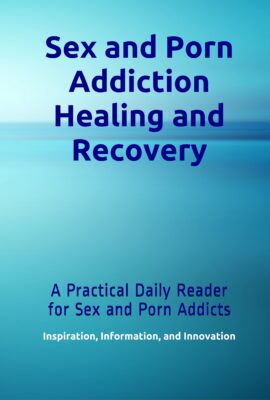Addict: Six Tips for Surviving the Holidays

Scott Brassart
For addicts, the holidays can be extremely stressful. Thanks to social messaging (movies, TV, commercials, etc.), during this supposedly joyous season, we feel like we need to be perfect—even more than usual. We think we need to cook the perfect meals, put out the best decorations, buy the best gifts, and always be the life of the party (but not go overboard and make a fool of ourselves). When one little thing doesn’t go as planned, we feel like a failure. Shame sets in and we see ourselves as unlovable, unpopular, annoying, and distracting from others’ enjoyment of the season. If we are addicts, this puts the addict at risk for relapse. If we are the loved one of an addict, this can put us into “control freak” mode. Even ordinary people find themselves on edge.
Below I’ve listed six tips that will help us all not only survive during the holidays, but thrive.
- Create a gratitude list. Gratitude and happiness are closely related. After nearly two decades of studying happiness, psychologist Brené Brown has discovered one key difference between happy and unhappy people: Happy people are grateful for what they have. It doesn’t seem to matter to them what they have (or don’t have); Either way, they’re grateful. Gratitude brings happiness. period. So if we’re feeling down, a great way to get out of that mood is to write a 10-item gratitude list. This helps us focus on the present moment and the blessings in our lives rather than focusing on imperfections or problems that may arise in the future.
 connect. One of the best ways to combat stress, depression, anxiety, and agitation during the holidays is to participate in seasonal activities with other peopleespecially family and friends. We can bring our spouse or best friend instead of buying the gift ourselves. Instead of baking and decorating 12 dozen cookies ourselves, we can let the kids help. Instead of hanging twinkling lights alone, we can help our neighbor hang his lights and have him help us hang ours. Sure, all of these activities might take a little more time with the “help” of family and friends (and the cookie decorating might not be as good as we could manage on our own), but at the end of the day, the holidays are not about speed and perfection. They are about love and connection.
connect. One of the best ways to combat stress, depression, anxiety, and agitation during the holidays is to participate in seasonal activities with other peopleespecially family and friends. We can bring our spouse or best friend instead of buying the gift ourselves. Instead of baking and decorating 12 dozen cookies ourselves, we can let the kids help. Instead of hanging twinkling lights alone, we can help our neighbor hang his lights and have him help us hang ours. Sure, all of these activities might take a little more time with the “help” of family and friends (and the cookie decorating might not be as good as we could manage on our own), but at the end of the day, the holidays are not about speed and perfection. They are about love and connection.- Check in daily. Most recovering addicts already know the acronym HALT, which stands for Hunger, Anger/Anxiety, Loneliness, and Tiredness. They know that if they experience one or more of these conditions, the risk of recurrence increases. So they eat a sandwich, talk to friends, take a nap, or engage in some other healthy activity to reduce stress, anxiety, and isolation. This kind of examination can also benefit non-addicts. During the holidays, it can be helpful to add some additional questions, such as: Am I keeping any secrets? Have I ever lied? If so, do I need to correct this? Do I have any unrealistic expectations for the holidays? If so, what steps can I take to resolve this issue? Do I have a workable plan for dealing with holiday disappointments? If not, what should I do? Do I expect others to behave a certain way during the holidays? If so, what steps can I take to resolve this issue? These check-ins should be done in the presence of others—12-step sponsors, friends in recovery or treatment, family members, etc. Often when we do a check-in, others can respond in kind. This way, we can reveal our secrets, get helpful feedback, and feel more connected to the people we care about.
- Relax. During the holidays, most of us seem to think that our lives should be a non-stop series of parties, dinners, events, and shopping sprees. But we also need to work, run a household, take care of our children (who may have more activities to do), and simply live life. It’s easy to get overwhelmed by it and forget about self-care in the process. Most of us find it helpful to set aside some time each day (at least an hour) to rest and relax. Meditation, yoga, reading, watching interesting TV (not the news!), movies, naps, and leisurely walks are highly recommended. We also need to get enough sleep, eat reasonable and healthy meals, and get regular exercise. Although the holidays can be stressful, taking care of ourselves in this way can keep us on an even keel.
- Go the extra mile to recover. We should not cancel or skip 12-step meetings, therapy, or other forms of support during the holidays. In fact, this is a great time to double down on your recovery and healing by attending our daily meetings and therapy sessions, as well as a few extra sessions. Remember: This is where we come for empathetic understanding and support, something we need more than ever during the holidays.
- Let people be people. We cannot control other people. Of course, we want our friends and family to be happy and well behaved at all times, and we will do our best to achieve this. But they will think, feel and act the way they choose and there is nothing we can do about it. If grandma let our youngest eat ten of her famous espresso chocolate chip cookies and now a Tasmanian devil was running around the house, we might get mad, or we could give our crazy kids Take a photo and post it on Facebook. If our neighbor decorated his house like Clark Griswold in Christmas Vacation , we might worry that our decorations weren’t adequate, or we might be happy that we didn’t pay his electric bill. etc. Others do what they do and we need to let them do it. Even more so during the holidays.
Ultimately, staying sane during the holidays is a lot like staying sane year-round, but on steroids. In short, we need to recognize that the emotional and psychological triggers we grapple with year-round may be more frequent and intense during the holidays, especially when it comes to spiked eggnog, excessive office parties, and inappropriate behavior. end-of-life shopper situation. And all the other not-so-wonderful things about the holidays compound our normal day-to-day challenges. Therefore, we need to stand up for ourselves during this difficult time and practice self-care that reflects the emotional and physical stress this season puts on us.
* * * * * * * * * * *
If you or someone you care about is struggling with a sex or porn addiction, help is available. For porn addicts, Seeking Integrity offers a low-cost online work group series. Click here for information. We offer a similar work group series for sex addicts. Click here for information.


 Anal Beads
Anal Beads Anal Vibrators
Anal Vibrators Butt Plugs
Butt Plugs Prostate Massagers
Prostate Massagers
 Alien Dildos
Alien Dildos Realistic Dildos
Realistic Dildos
 Kegel Exercisers & Balls
Kegel Exercisers & Balls Classic Vibrating Eggs
Classic Vibrating Eggs Remote Vibrating Eggs
Remote Vibrating Eggs Vibrating Bullets
Vibrating Bullets
 Bullet Vibrators
Bullet Vibrators Classic Vibrators
Classic Vibrators Clitoral Vibrators
Clitoral Vibrators G-Spot Vibrators
G-Spot Vibrators Massage Wand Vibrators
Massage Wand Vibrators Rabbit Vibrators
Rabbit Vibrators Remote Vibrators
Remote Vibrators
 Pocket Stroker & Pussy Masturbators
Pocket Stroker & Pussy Masturbators Vibrating Masturbators
Vibrating Masturbators
 Cock Rings
Cock Rings Penis Pumps
Penis Pumps
 Wearable Vibrators
Wearable Vibrators Blindfolds, Masks & Gags
Blindfolds, Masks & Gags Bondage Kits
Bondage Kits Bondage Wear & Fetish Clothing
Bondage Wear & Fetish Clothing Restraints & Handcuffs
Restraints & Handcuffs Sex Swings
Sex Swings Ticklers, Paddles & Whips
Ticklers, Paddles & Whips






 connect. One of the best ways to combat stress, depression, anxiety, and agitation during the holidays is to participate in seasonal activities with other peopleespecially family and friends. We can bring our spouse or best friend instead of buying the gift ourselves. Instead of baking and decorating 12 dozen cookies ourselves, we can let the kids help. Instead of hanging twinkling lights alone, we can help our neighbor hang his lights and have him help us hang ours. Sure, all of these activities might take a little more time with the “help” of family and friends (and the cookie decorating might not be as good as we could manage on our own), but at the end of the day, the holidays are not about speed and perfection. They are about love and connection.
connect. One of the best ways to combat stress, depression, anxiety, and agitation during the holidays is to participate in seasonal activities with other peopleespecially family and friends. We can bring our spouse or best friend instead of buying the gift ourselves. Instead of baking and decorating 12 dozen cookies ourselves, we can let the kids help. Instead of hanging twinkling lights alone, we can help our neighbor hang his lights and have him help us hang ours. Sure, all of these activities might take a little more time with the “help” of family and friends (and the cookie decorating might not be as good as we could manage on our own), but at the end of the day, the holidays are not about speed and perfection. They are about love and connection.
![[MINI POD]Go home for the holidays (even if you're not home)](https://ps-eden.com/wp-content/uploads/2025/12/MINI-PODGo-home-for-the-holidays-even-if-youre-not.avif)









